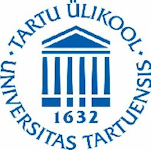AMuSE
Approaches to Multilingual Schools in Europe
- Deutsch
- English
- Italiano
- Project duration: -
- Project status: finished
- Institute: Institute for Applied Linguistics
Increasing ethnic and cultural diversity offers opportunities, but also challenges for European education policy and schools. Linguistic and cultural diversity is a reality in European societies and particularly so in schools in urban areas and minority regions. Nevertheless, education policy and schools are generally following monolingual practices and do not use the existing potential of multilingualism in class.
This project is made up of a network of partner institutions, and it pursues the aim of showing ways in which schools can make use of the multilingualism of their students (and eventually even their teachers) in order to overcome a monolingual habitus (cf. Gogolin, 1994 and 2006) and achieve functional multilingualism.
To fulfill this aim, it is necessary to facilitate an exchange between representatives from research, policy and practice, and to inform them about the current status in the relevant other fields. Thus, the target groups of the network are decision-makers at three levels:
- Local and federal education authorities (provinces / cantons),
- Institutions of teacher education,
- Heads of schools in multilingual and multicultural environment.
In the first phase, the network will figure out how schools in minority regions and metropolitan areas currently deal with the multilingualism of their students and how teacher education is currently responding to the given social reality. Existing models for dealing with multilingualism in schools and relevant approaches to teacher education will be evaluated, systematized and presented to the target groups. In the second phase, these insights will be made available for and exchanged with the target groups by means of an online discussion platform and conferences. The final publications (manuals, brochures, articles, etc.) will also support the sustainable implementation and dissemination of results.
An additional concern of the conferences is to bring together representatives of various European countries and to enable an exchange of so-called ‘old’ and ‘new’ minorities.
